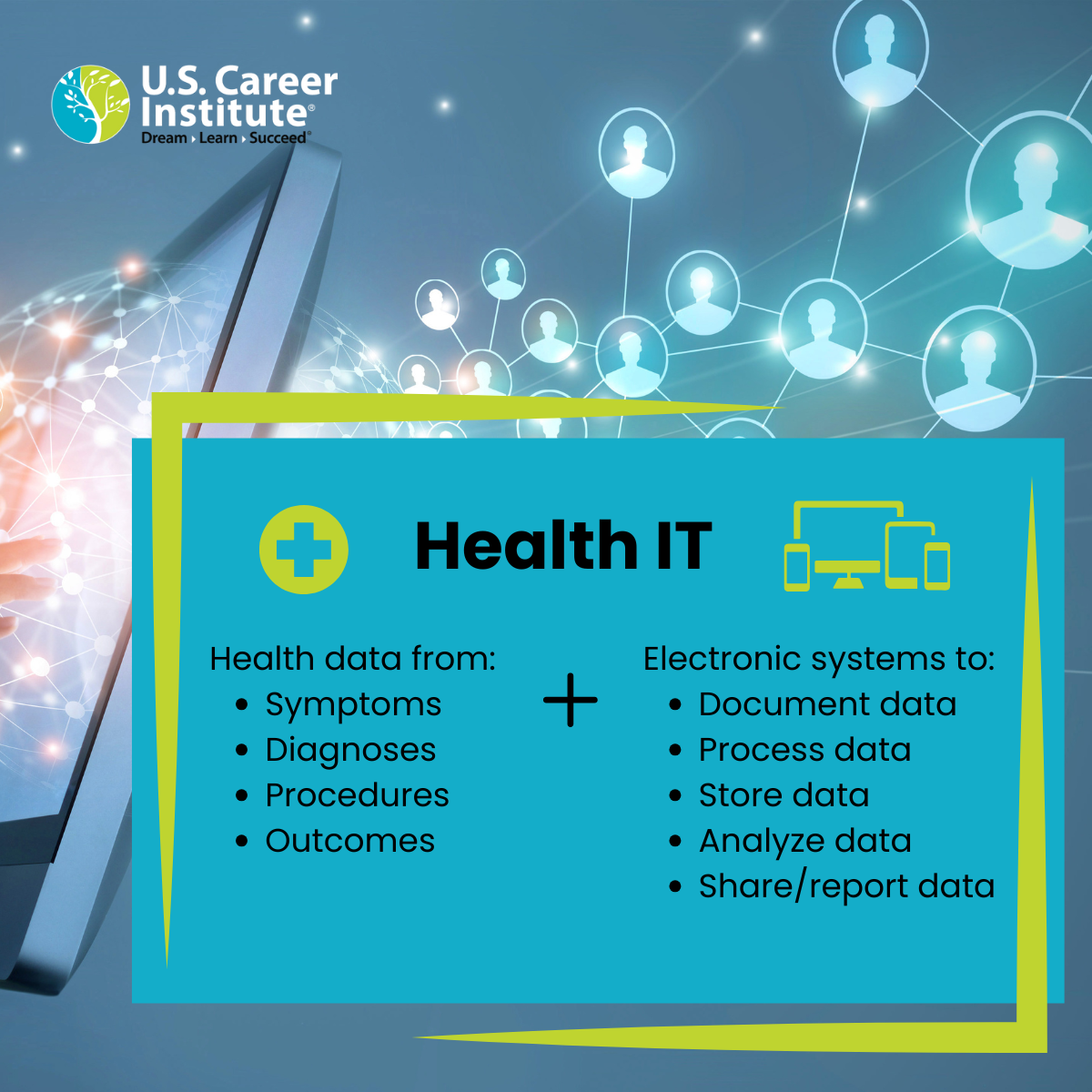What is health IT
By: Jenn Brusco | April 2025
There’s no question that healthcare collects and uses a lot of data to support effective patient care, research, treatment development, and healthcare system management. Recent reports suggest that a staggering 463 exabytes of data is created every day, with some estimates reporting 30% of the world’s data volume comes from the healthcare industry. That data comes from a variety of sources, including electronic health records (EHRs), administrative data, medical claims data, disease registries, health surveys, and more. With so much healthcare data influencing patient care and innovation, it’s no wonder that there is a team of trained professionals to manage it. It’s a discipline (and career) that centers around health IT.
What is Health IT
According to the U.S. Department of Health and Human Services, “Health information technology (health IT) involves the processing, storage, and exchange of health information in an electronic environment.” Breaking this down even further, health IT combines health data (i.e., “data related to a person's medical history, including symptoms, diagnoses, procedures, and outcomes”) with IT systems used to document, process, store, analyze, and share that data.

Who manages health data?
There are numerous roles within the healthcare team who are responsible for collecting, updating, or otherwise managing health data. The following roles are a few of them:
- Medical coder: A medical coder is responsible for reviewing patient visit information and assigning appropriate clinical codes to accurately bill for services rendered.
- Clinical Informatics Specialist: A clinical informatics specialist is responsible for leveraging IT solutions to improve clinical workflows and data analysis.
- Clinical Informatics Analyst: A clinical informatics analyst is responsible for analyzing healthcare data to identify trends and opportunities to improve processes.
- Cybersecurity specialist: A cybersecurity specialist is responsible for maintaining the security and privacy of healthcare data.
- Electronic medical records (EMR) specialist: An EMR specialist is responsible for managing patient data within an electronic medical record. They help to ensure data accuracy, accessibility, and compliance.
- Healthcare data analyst: A healthcare data analyst also supports accurate patient data collection and maintenance, but they take it a step further by analyzing the data as well. Often a healthcare data analyst will work more on the business side of healthcare, using data to validate research data, improve operations, reduce costs, and improve patient care.
- Health information technician: A health information technician not only gathers and analyzes patient data, they also generate reports and track patient outcomes. Additionally, a health information technician is typically responsible for designing and developing health information systems, including electronic health record systems.
How to get started with a career in health IT?
If the thought of working with healthcare data and supporting better patient care outcomes excites you, then a career in health IT may be a great option for you. The first step is to explore the varying levels of health IT roles, like those mentioned above. Keep in mind that you may choose to go directly into a specific career path or take more of a steppingstone approach.
For example, you may choose to become an EMR specialist first, gaining valuable knowledge and experience, before taking the next step in your education to become a health information technologist. With this career path, you will need to earn your high school diploma or equivalent and complete an accredited EMR specialist training program. To take the next step toward a career as a health information technologist, you will need to earn a degree in health information management. At a minimum, you should expect to complete an associate degree, but some employers may require more advanced degrees, such as a bachelor's or even a master's degree. Additionally, health information technologists typically need a certification, such as a certified health data analyst (CHDA) or registered health information technician (RHIT).
Ready to take the first step in your health IT career?
Enroll in U.S. Career Institute’s online EMR specialist certificate program or online health information technology (HIT) associate degree program. Our affordable programs are 100% online, self-paced, DEAC accredited, and designed and developed by our curriculum experts and real-world professionals working in the field. We understand the power and importance of healthcare data and are committed to helping you succeed.
